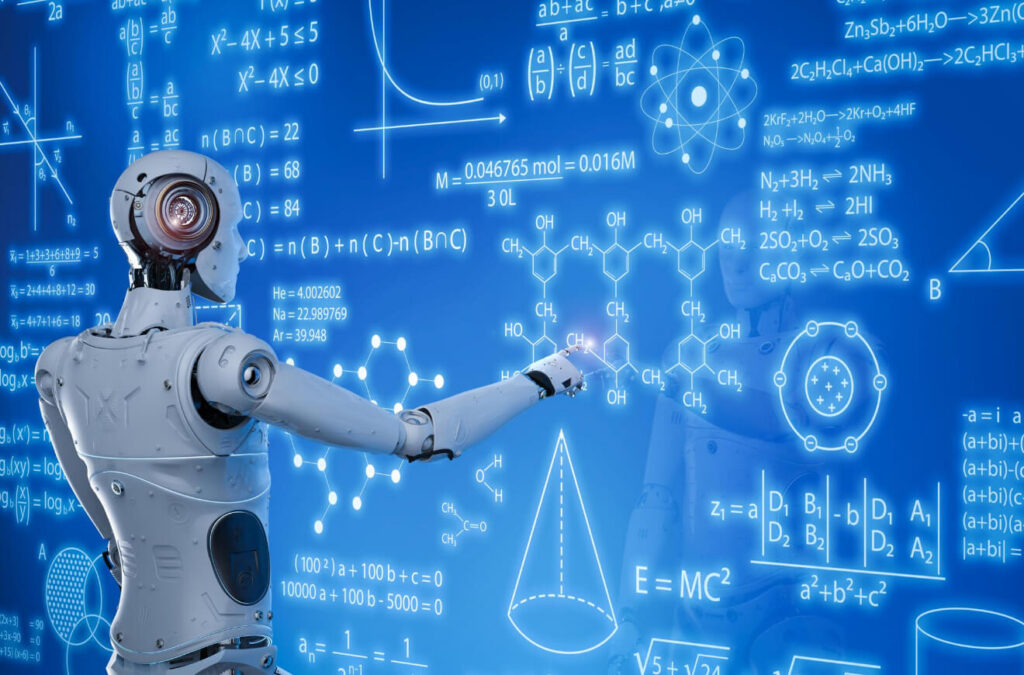AI will drastically change schooling and teaching techniques, according to a recent paper by Mary Meeker. Her study is on the potential of AI to transform the field of education. Meeker says AI can speed up learning and lessen the amount of preparation instructors need to do. She describes how artificial intelligence (AI) will help technological difference, offer real-time feedback, and customize learning.
Mary Meeker is renowned for her annual “Internet Trends” reports, which she began publishing in 1996 while working as an analyst at Morgan Stanley. These reports, often hundreds of pages long, became a crucial resource for understanding the rapid changes in technology and were referred to by some as the “Silicon Valley bible.” After a four-year hiatus, Meeker has returned with fresh insights, focusing on the current technological revolution driven by AI.
Meeker’s latest report, titled “AI & Universities,” examines how AI will reshape education. She asserts that the most significant change will be the increased accessibility of information for students. “Students will have more answers at their fingertips faster — some will be right and some will be wrong,” Meeker writes. This accessibility, she notes, presents both a challenge and an opportunity for educators. While it may be “the best time ever to be a self-motivated student,” it also demands that teachers adapt to new roles and responsibilities.
According to Meeker, the future of education will look drastically different from today. AI’s ability to accelerate learning, even for students who miss in-person lectures, will become “a new art form” for teachers. As technology evolves and becomes more widely available, teachers will be able to save time and increase productivity by leveraging AI. Meeker highlights several time-intensive tasks where AI can be particularly beneficial, such as analyzing student performance to create personalized learning plans or using generative AI models to translate raw texts and videos into assignments and learning material.
Meeker sees an inclusive classroom in which educators take on roles such as tutors, coaches, and cheerleaders. To accommodate different learning styles, AI may provide instructors and students with real-time feedback. One useful tool for dyslexic kids is automated text-to-speech capability. Artificial Intelligence (AI) has the potential to mitigate teacher fatigue by decreasing incremental and unpaid preparation labor. This includes programs that help with assignment review, scheduling, grading, and keeping track of attendance.
The report emphasizes the importance of investing in AI resources for schools aiming to lead in research and innovation. As tech companies with access to AI GPUs attract and retain top talent, educational institutions must also invest in AI to stand out. “On the research side, technical resource availability, such as GPU access, will likely be key to differentiation/leadership,” Meeker writes.
While acknowledging that AI may replace human involvement in certain areas, such as coding and computation, Meeker remains optimistic about its potential to propel human innovation. By making technical skills more accessible, AI can free up human intelligence to focus on creativity and ingenuity, which are the driving forces behind building and producing new things and ideas.
In summary, Mary Meeker’s report offers a comprehensive look at how AI is poised to transform education. By accelerating learning, personalizing education, and reducing teacher workload, AI presents both challenges and opportunities for the future of education. Meeker’s insights highlight the importance of embracing AI to enhance the educational experience for both students and teachers.
The integration of AI in education is not merely about improving efficiency but also about enriching the learning experience. AI can adapt to different learning styles, ensuring that each student receives the support they need. This personalized approach can help students grasp concepts more effectively and at their own pace, leading to a deeper understanding of the material. For teachers, AI can provide valuable insights into student performance, identifying areas where students struggle and need additional help. This enables teachers to tailor their instruction to meet the needs of each student, fostering a more inclusive and supportive learning environment.
Furthermore, AI can transform the administrative aspects of education. By automating tasks such as grading and attendance tracking, AI frees up valuable time for teachers, allowing them to focus more on teaching and less on paperwork. This not only enhances the efficiency of the education system but also improves the overall quality of education. Teachers can spend more time developing engaging lessons, providing individualized support, and fostering a positive classroom environment.
The potential of AI to support technical differentiation is another significant aspect highlighted by Meeker. In an increasingly competitive educational landscape, institutions that invest in AI resources will be better positioned to attract top talent and lead in research and innovation. Access to advanced AI tools, such as GPUs, will enable schools to conduct cutting-edge research, develop innovative teaching methods, and provide students with a high-quality education that prepares them for the future.
Meeker’s report also touches on the ethical considerations of integrating AI into education. While AI offers many benefits, it is crucial to ensure that its implementation is done responsibly and ethically. This includes protecting student data, ensuring transparency in AI decision-making processes, and addressing potential biases in AI algorithms. By addressing these ethical considerations, educators can harness the power of AI to create a more equitable and just education system.
The study by Mary Meeker offers insightful information about the revolutionary possibilities of AI in education. AI provides several advantages to educators and students alike by streamlining learning, customizing instruction, and lightening the workload of teachers. But it is imperative that the integration of AI be done so while giving serious thought to the ethical ramifications and emphasizing how to improve education as a whole. Adopting AI will be essential to ensuring that students are ready for the possibilities and challenges that lie ahead as the educational landscape continues to transform.
If you like the article please follow on THE UBJ.
